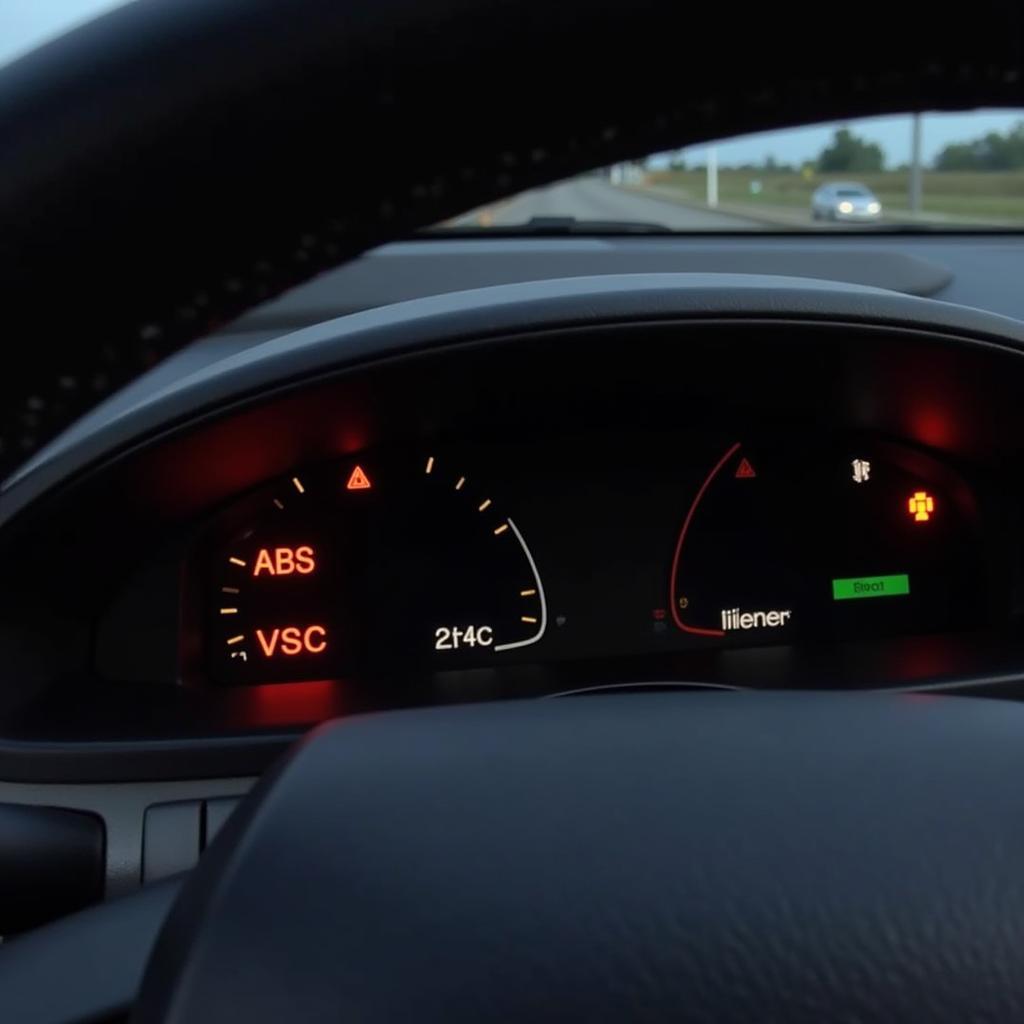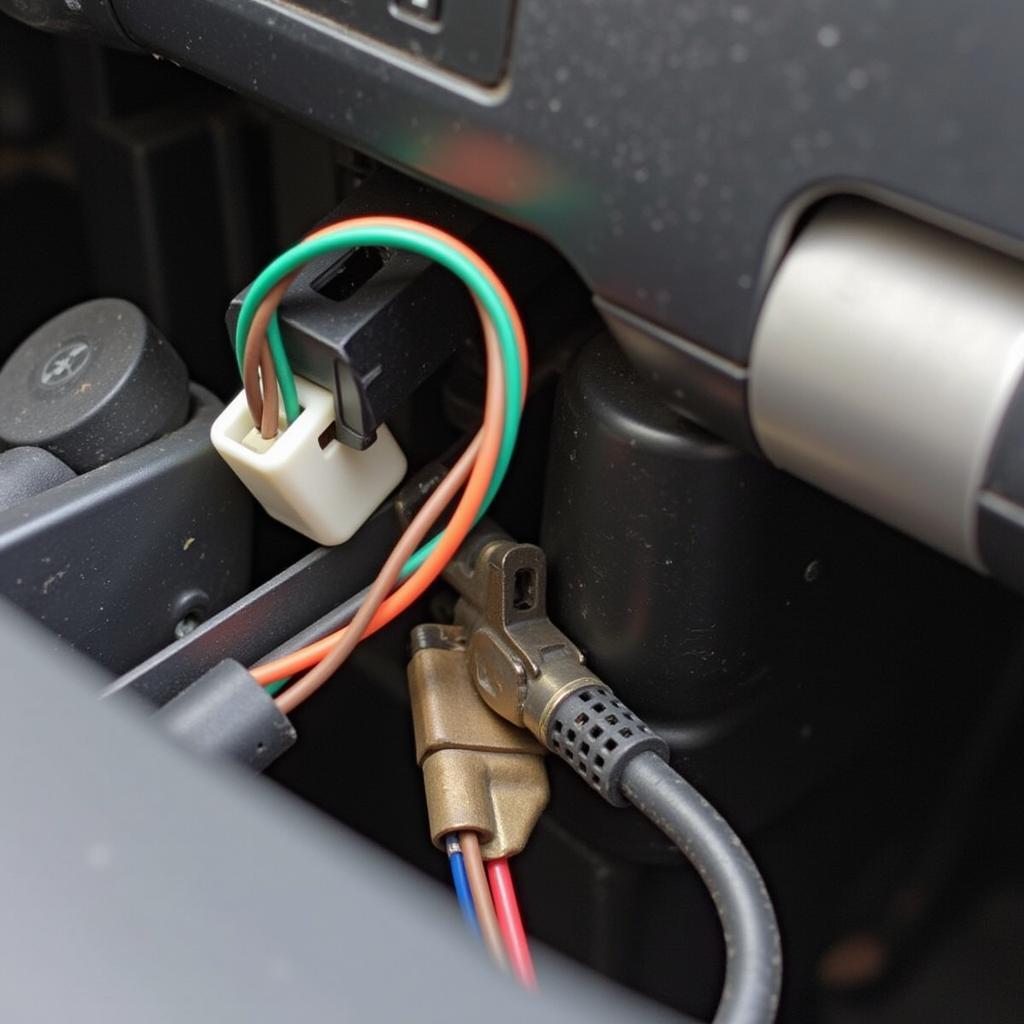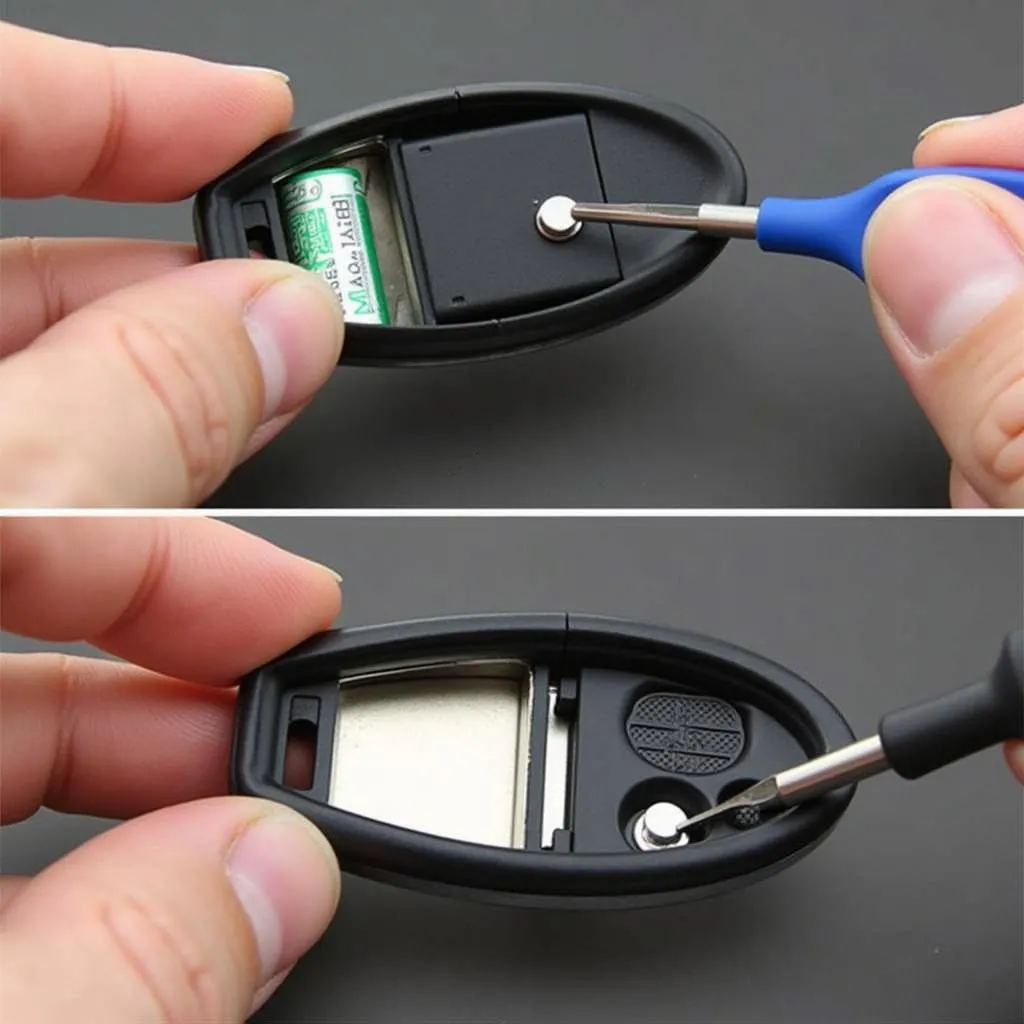Driving a Toyota Prius is generally a smooth experience, known for its reliability and fuel efficiency. However, encountering warning lights on your dashboard can be unsettling. One such situation arises when the ABS (Anti-lock Braking System) and VSC (Vehicle Stability Control) warning lights illuminate alongside a brake light malfunction. This often points towards a potential short circuit affecting your Prius’s braking system, a concern demanding immediate attention. This article serves as a comprehensive guide to understanding and troubleshooting the “Prius ABS VSC warning brake light short circuit” issue, offering potential solutions and expert insights to get you back on the road safely.
Understanding the Warning Signs
The simultaneous illumination of the ABS, VSC, and brake light warnings is a strong indicator of a problem within your Prius’s braking system. Here’s a breakdown of what these warnings typically signify:
- ABS Warning Light: Indicates a potential issue with the Anti-lock Braking System, which prevents wheel locking during hard braking.
- VSC Warning Light: Signals a problem with the Vehicle Stability Control, a system designed to maintain traction and prevent skidding.
- Brake Light Malfunction: This could range from a single brake light being out to all brake lights malfunctioning, often indicating a short circuit within the system.
 Prius Dashboard with Brake Warning Lights
Prius Dashboard with Brake Warning Lights
Common Causes of a Brake Light Short Circuit
A short circuit occurs when an electrical current finds an unintended path, often leading to malfunctions. Several factors can lead to a brake light short circuit in your Prius:
-
Worn or Damaged Wiring: Exposure to heat, moisture, or rodents can degrade the wiring harness, causing shorts.
-
Faulty Brake Light Switch: This switch, activated when you press the brake pedal, can malfunction and cause a short.
-
Water Ingress: Moisture entering the taillight assembly or other brake light components can lead to corrosion and shorts.
-
Aftermarket Accessories: Improperly installed aftermarket accessories, especially those connected to the brake light circuit, can introduce shorts.
 Damaged Brake Light Wiring in Prius
Damaged Brake Light Wiring in Prius
Troubleshooting the Short Circuit
Before diving into repairs, it’s essential to diagnose the root cause of the short circuit accurately. Here’s a step-by-step guide:
-
Visual Inspection: Start by visually inspecting the brake lights, wiring, and connectors for any visible damage, corrosion, or loose connections. Pay close attention to the taillight assemblies, as they are prone to water ingress.
-
Check the Brake Light Bulbs: Begin with the simplest solution – ensure all brake light bulbs are functioning. Replace any burnt-out bulbs with the correct type.
-
Test the Brake Light Switch: Locate the brake light switch (usually above the brake pedal) and test its functionality using a multimeter. A faulty switch will need replacement.
-
Inspect the Wiring Harness: Carefully examine the brake light wiring harness for any signs of damage, chafing, or melting. Repair or replace any damaged sections.
-
Check for Water Damage: Look for signs of water ingress in the taillight assemblies and other brake light components. Dry out any moisture and repair or replace damaged parts.
“Remember, safety is paramount when working with electrical systems. If you’re uncomfortable performing these checks, it’s best to consult a qualified mechanic.”
— John Miller, Certified Automotive Electrician
Resolving the Issue
Once you’ve identified the source of the short circuit, take the necessary steps to address it. This may involve:
-
Repairing or Replacing Damaged Wiring: If the wiring harness is compromised, repair or replace the affected sections. Ensure proper insulation and secure the wiring to prevent future damage.
-
Replacing Faulty Components: Replace any faulty components such as the brake light switch, bulbs, or taillight assemblies with new ones. Use high-quality OEM or aftermarket parts for optimal performance and longevity.
-
Addressing Water Ingress: If water damage is present, thoroughly dry the affected areas and seal any potential entry points to prevent future moisture intrusion.
Preventive Measures
Preventing future brake light short circuits involves regular maintenance and careful practices:
-
Regular Inspections: Periodically inspect your Prius’s brake lights, wiring, and connectors for signs of wear, damage, or corrosion.
-
Prompt Repairs: Address any brake light issues promptly to prevent further damage and potential safety hazards.
-
Professional Installation: Ensure any aftermarket accessories, especially those connected to the electrical system, are installed correctly by a qualified technician.
Conclusion
Addressing a “Prius ABS VSC warning brake light short circuit” requires a systematic approach involving careful diagnosis and appropriate repairs. By understanding the common causes, following the troubleshooting steps, and taking preventive measures, you can ensure the optimal functionality and safety of your Prius’s braking system. Remember, when in doubt, seeking professional assistance from a qualified mechanic is always recommended.

